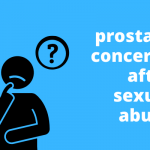BHM 2023
Notts SVSS Celebrates Black History Month 2023
October is Black History Month and our staff and trustees have taken time to nominate people for our list of 31 Inspirational Black People. This is a chance to find out more about Black History and about people who are creating history today. The list includes people like civil rights activist Rosa Parks, writer and actor Michaela Cole, FGM campaigner Valentine Nkoyo and poet Benjamin Zephaniah. If you have people you would like to highlight, please let us know!
Mary Seacole (1805 – 1881)
Mary Seacole volunteered to help with nursing soldiers in Crimean war but was refused. She attributed her rejection to racial prejudice. Florence Nightingale also turned her support down. Undeterred, Mary Seacole funded her own travel to Crimea and set up her own premises, offering a place of respite for sick and recovering soldiers at the ‘British Hotel.’ She took food and provisions near the British camp and nursed casualties brought out from the trenches. She was known fondly as ‘Mother Seacole.’
Seacole was largely forgotten about after the war until nurses from the Caribbean visited her grave in North West London. She was voted the Greatest Black Briton in 2004 and a statue of her was unveiled in St Thomas’s Hospital in 2016. You can read more about her story at the Mary Seacole Trust.
Akeim Mundell BEM
‘Growing up in a working-class community there are often struggles to achieve academically through feeling demotivation and a lack of guidance’
Akeim Mundell left school at 16. He had failed to get the grades he needed to follow his chosen career in medicine and was unsure what to do. Encouraged by Jenny McGarry, head of St Mary’s C of E – the Moss Side, who had taught him in years 2 and 3, Mundell became a teaching assistant working through his TA career levels.
In 2018 he joined Chorlton High School as a teacher, becoming pastoral leader and head of year. During this time, Mundell was also campaigning for young people in Moss Side. He worked with a handful of boys who needed guidance to stay on the right path, and used that opportunity to meet with counsellors, visit Parliament and speak about the changes needed in the community.
As well as being the UK’s youngest assistant principle at William Hulme’s Grammar School, Mundell is also a founding trustee of the Rekindle Supplementary School in Hulme, which provides free nutritious meals, educational life skills and empowerment programmes.
Merlita Bryan
Merlita Bryan is a Jamaican-born woman who came to the UK in 1962. She trained as a hairdresser and studied trade union politics. In 2007 she was elected as a Labour Councillor for the Arboretum ward of Nottingham City. Since then, she has been appointed Sherriff of Nottingham twice and Lord Mayor once.
In 2011, Bryan set up the Black Achievers Awards ‘which recognises and promotes the achievements of our BME community.’ The awards evening is held every year during Black History Month. You can find out details of the awards, including previous winners here.
Jean ‘Binta’ Breeze MBE (1956 – 2021)
Jean ‘Binta’ Breeze is a poet who expressed female experience through her work. She is recognised as a powerful performance poet and was the first female poet to perform dub, fusing reggae rhythms and music with the spoken word.
Born in Jamaica, she split her time between there and Britain and was made honorary creative writing fellow at the University of Leicester in 2011. Through the Renaissance One project she helped to mentor workshops and poets in Leicester, Nottingham and Derby.
She was known by a member of our staff who described her as ‘an absolute powerhouse of a female.’ You can listen to her performing some of her poetry here
Recy Taylor (1919 – 2017)
Recy Taylor was born in 1919 and grew up in Abbeville Alabama. She married and lived with her husband and daughter in a sharecropper’s cabin. One evening when she was aged 24, after attending a special church service, she was abducted at gunpoint in front of her friends by a group of seven white men. She was driven away, subjected to multiple rapes before being dumped on the side of the highway.
Despite it being very dangerous for African Americans to speak out and seek justice at the time she bravely testified. Rosa Parks, the NAACP and other activists supported her during this time. She was repeatedly denied justice, despite four of the men confessing to what happened. It wasn’t until almost 70 years after her assault, following publication of her story in a book by historian Danielle L McGuire, that Alabama Legislature issued a formal apology to Taylor. You can read more about her story here.
Cathy Freeman (1973 – present)
‘I’ve had my fair share of being dismissed. But I’m only about to turn 30. And when I finish running, I’m going to be a dangerous woman.’
Catherine Astrid Salome Freeman is an Aboriginal Australian born in Queensland. She recalled how aged 10 she won a footrace but was never given a trophy ‘Apparently because I was black.’
At the age of 16 Freeman became the first Indigenous Australian to win a gold medal at the Commonwealth Games. She was criticised by a commentator for celebrating with both the Aboriginal flag and the Australian flag during her victory lap.
Freeman lit the flame to open the 2000 Olympic Games in Sydney – this marked the organisers’ hopes that the games would bring reconciliation in Australia. 10 days later she won gold in the women’s 400 metres.
In 2007 she established the Cathy Freeman Foundation to assist Aboriginal children with their education.
Muhammad Ali – (1942 – 2016)
‘I know where I’m going and I know the truth, and I don’t have to be what you want me to be. I’m free to be what I want.’
Born Cassius Macellus Clay Jr, Ali found boxing through a twist of fate. After his bike was stolen Clay (aged 12) said to police officer Joe Martin that he wanted to beat up the thief. The officer (who also trained young boxers) said ‘Well, you better learn how to fight before you start challenging people.’
Ali was taught how to spar by Martin and had his first amateur bout in 1954. Known for his lightning speed and fancy footwork, he won light heavyweight Olympic Gold Medal. He became heavyweight champion of the world in 1964.
In 1967 he refused to be drafted to fight in the Vietnam war. He was refused conscientious objector status and was found guilty of violating Selective Service laws. He was stripped of his title and not allowed to fight professionally. While he appealed this conviction, he spoke at colleges across the nation criticising the Vietnam War.
In 1971 the conviction was overturned allowing Ali to return to fighting on a regular basis. In total Ali had 56 wins over his career and is nicknamed ‘the Greatest.’
Tina Turner (1939 – 2023)
‘There is no strict regimen that says when you are in your late 40s you cannot wear a minidress.’
Tina Turner (born Anna Mae Bullock) was born in Nutbush, Tennessee. She originally sang in her church choir before having a successful career with her husband Ike. Biographies describe domestic abuse both in her childhood home and later in her marriage.
Despite leaving her husband in 1976 with ‘36 cents and a gas station credit card,’ Tina Turner carried on with a solo career. It was quiet for many years but in 1983 she released a remake of ‘Let’s Stay Together’ and in 1984 she released her album Private Dancer. By this time she was in her late 40s.
Turner went on to have many more hits and sang soundtracks for Goldeneye and The Lion King. She was inducted into the Rock and Roll Hall of Fame twice, first with her former husband Ike and later as a solo artist. She remarried in 2013 and lived in Switzerland. She converted to Buddhism.
Valentine Nkoyo
Valentine Nkoyo was born in Kenya and was a student at York St John University from 2009 – 2011. Valentine moved to Nottingham to pursue a Masters in Business Administration. She was founder and director of Mujatu in Nottingham and was behind the work that led to Nottingham declaring itself an FGM-free zone.
Valentine’s community work, in particular her anti-FGM campaigning led to her being invited to have an audience with the late Queen Elizabeth II.
Valentine died in 2023 and a Go Fund Me page was set up for the repatriation of her body to Kenya.
Baroness Doreen Lawrence OBE (1952 – present)
‘I could have shut myself away but that is not me’
Doreen Lawrence is a British Jamaican and mother of Stephen Lawrence, a black British teenager who was murdered in London in a racist attack in 1993. She campaigned against the poor police investigation citing incompetence and racism as prime flaws. This lead to the MacPherson Inquiry and to further campaigns for reforms of the service.
Baroness Lawrence has been invited to sit on panels with the Home Office and the Police and is a member of the board and council for Liberty. In 2003 she was appointed OBE and in 2013 received a peerage. She has written a course called Finding the Inner Strength, in which she talks about how she was able to channel her pain into positivity and change.
Eddie Mabo (1946 – 1992)
‘My name is Edward Mabo, but my island name is Koiki. My family has occupied the land here for hundreds of years before Captain Cook was born.’
Eddie Mabo was an Aboriginal Australian man known for his role in campaigning for Indigenous rights in Australia. He was responsible for the landmark decision of the High Court of Australia that overturned the international law doctrine of terra nullius “nobody’s land.” This resulted in the Native Act 1993 and the native title in Australia, leading to the rights of Aboriginal and Torres Strait people being officially recognised.
Mayo Angelou – Poet and Activist (1928-2014)
‘Love life. Engage in it. Give it all you’ve got. Love it with a passion because life truly does give back, many times over, what you put into it.’
Maya Angelou was an American born author, actress, screen writer, dancer, poet and civil rights activist best known for her 1969 memoir I Know Why the Caged Bird Sings which was the first nonfiction bestseller by an African American woman, as well as many famous poems such as ‘Still I rise.’
Angelou wrote ‘On the Pulse of Morning’ for the first inauguration of President Bill Clinton. Its themes include include welcoming change, embracing inclusiveness, and facing the past.
Sir Lenny Henry (1958 – present)
‘If you can’t see, you can’t be. If we don’t see BAME people on the TV, or in film, we become invisible.’
Lenny (Lenworth) Henry is an actor, comedian, singer, television presenter and writer. In the 1980s he was the most prominent black British comedian of the time.
In 1985 he co-founded the charity Comic Relief with Richard Curtis. This used a mixture of comedy sketches and hard-hitting documentaries to bring awareness and money to projects supporting people in poverty in the UK and around the world.
Rosa Parks (1913 – 2005)
Rosa Parks was an American Activist in the civil rights movement. She is known for her pivotal role in the Montgomery Bus Boycott, when in 1955 she refused to give up her seat for a white passenger. She was arrested for civil disobedience for violating Alabama’s segregation laws. As a result the Black community boycotted the buses for over a year. The following year, a separate lawsuit resulted in the decision that bus segregation was unconstitutional. You can read more information here.
Sheku Kanneh-Mason MBE – (1999 – present)
“Growing up, I didn’t know of many Black classical musicians.”
Sheku Kanneh-Mason is a black British cellist who won the 2016 BBC Young Musician of the Year Award. He was the first black person to win the accolade since the launch of the competition in 1978. He is a graduate of London’s Royal Academy of Music, played at the Duke and Duchess of Sussex’s wedding in 2018 and became an MBE in 2020. You can find out more and listen to his music on his website.
Dr Benjamin Zephaniah (1958 – present)
“This planet is for everyone, borders are for no one. It’s all about freedom.”
Describing himself as a ‘poet, writer, lyricist, musician and naughty boy’, Benjamin Zephaniah was born and raised in Birmingham. His poetry is influenced by the music and poetry of Jamaica and what he calls ‘street politics.’
Zephaniah’s mission is to take poetry everywhere. His first collection was published by Page One Books, while many other publishers ignored him. However, he got noticed as a performance Dub (Reggae) Poet, and then got offers from many publishers. His poetry could often be heard at protests, youth gatherings and other spaces during British unrest in the 1980s.
Zephaniah has performed across all seven continents but his favourite tours are where the oral tradition is still strong. The accessibility of his work means that he continues to inspire many young writers. He is passionate about politics and poetry and is a regular guest on Question Time.
In 2003 he was offered but turned down an OBE. You can find out more about him on his website.
Michaela Coel (1987 – present)
‘There is a beauty in carving your own story, conceiving it, at least once, alone, then allowing others to assist in nurturing and maturing it.’
Michaela Coel is multiple award winner for I May Destroy You a television mini-series which covers consent in contemporary life and how in the landscape of dating and relationships, we make the distinction between liberation and exploitation. Besides writing, co-directing and starring in I May Destroy You, Coel was also executive producer for the show, which was inspired by her own experience of sexual assault. You can watch her character Arabella’s monologue here – note that this monologue talks about sexual assault and may be triggering.
You can watch the full series on BBC iPlayer
Mass Ndow-Njie
‘A bar that represents society also benefits society’
Mass Ndow-Njie is an award-winning barrister and founder and chair of Bridging the Bar, an organisation committed to increasing the equality of access to opportunities in the legal profession ‘regardless of race, sex or class.’ He is proud of his Gambian background and interests. Through his work, attitude and work in equality and diversity he asks why try to fit in, when you’re born to stand out?
Cairo Nevitt
‘Always be proud of your roots and the things that make you different: those are your blessings, not a hindrance. Own who you are.’
Cairo Nevitt is a trans male of Caribbean and English Heritage. He is a personal trainer and the first ever trans man to be featured in a mainstream fitness magazine. He has since gone on to feature on a Starbucks advert highlighting the importance of his name/diversity being recognised, has been featured in Gay Times on what it means to be a trans man of colour in the UK and is featured in this year’s Stonewall BHM campaign.
Tonia Wilson
Tonia Wilson has over 30 years of experience working with families and young people with a focus on inequality, diversity, GBV and inclusion. She is the project manager of WASSUP, which stands for Women Against Sexual Exploitation and Violence Speak Up, a group in Suffolk that is ran by Volunteering Matters. This project is targeted at gang grooming & sexual violence. They have created a toolkit and deliver this project to schools in their local area: https://volunteeringmatters.org.uk/project/wassup/
Wilson is also Director of Learning & Development for Aspire Black Suffolk which work to help empower communities and provide diversity and inclusion training: https://www.aspireblacksuffolk.org.uk/
In 2021 she was offered but declined an MBE.
Clive Myrie (1964 – present)
‘I’m not a news robot reading an Autocue.’
Clive Myrie is an award- winning journalist, newsreader and presenter who works for the BBC. He has worked as a Foreign Correspondent covering news such as the impeachment of President Bill Clinton, wars in Kosovo, Afghanistan and Iraq. He was publicly admired for shedding a tear while reporting from Ukraine last year.
Among many other awards and nominations, Myrie was nominated for a BAFTA for his role in a BBC team covering floods in Mozambique. He was awarded the Bayeux-Calvados Award for war correspondents for his work on ethnic violence in Borneo.
In 2023 he launched his book Everything is Everything – a Memoir of Love, Hate & Hope. He also presented the BBC Proms series and was particularly excited about the Northern Soul Prom describing himself as ‘a Northern Soul lad back in the day, growing up in Lancashire.’
Errollyn Wallen CBE (1958 – present)
‘we don’t break down barriers in music… we don’t see any.’
Errollyn Wallen is a multi-award-winning Belize-born British composer and performer. She moved to the UK when she was 2 and credits her original interest in music to her uncle who arranged piano lessons for her. Her musical output includes 22 operas and a large catalogue of orchestral, chamber and vocal works. She composed music for the Queen’s Golden and Diamond Jubilees.
She was the first black woman to have a work featured in the Proms and the first woman to receive an Ivor Novello award for Classical Music. She was made an MBE in 2007 and then a CBE in 2020. She is in the top 20 most performed living composers in the world.
Wallen founded the group Ensemble X whose motto is ‘we don’t break down barriers in music… we don’t see any.’
You can find out more and listen to some of her music on her website.
Shonda Rhimes (1970 – present)
Shonda Rhimes is one of the producers of Bridgerton on Netflix. Shonda wrote and produced the Queen Charlotte prequel to Bridgerton which tells the story of an interracial royal marriage. The character is based on a real-life figure Queen Charlotte. The series is ‘funny, moving, frustrating and gripping all at the same time as it was so beautifully put together.’
You can find out more about Shonda here.
Colin Jackson (1967 – present)
Colin Jackson was born and lives in Wales. He is a former sprint and hurdling athlete. He won an Olympic silver medal, was world champion twice and was undefeated at the European World Championships for 12 years. Between 1993 – 1995 he had a streak of 44 races undefeated.
In his youth Jackson was passed over for selection for the Welsh national cricket team when 3 of his mates were selected. He then focussed on athletics as “athletics had more people that looked like me.”
Simone Biles (1997 – present)
‘Put your mental health first… That’s more important than any other medal you could win.’
Simone Biles is an American artistic gymnast who has won 7 Olympic medals. She has also won 25 World Championship medals and is the most decorated gymnast in the history of the Gymnastics World Championships.
In January 2018, Biles revealed that she had been sexually abused by USA Gymnastics Physician. She also blamed the entire system for allowing this to happen. She and other teammates testified at the Senate Judiciary Committee on this issue.
During the Summer Olympics 2020, Biles dropped out of the team final as she needed to prioritise her own mental health. While she received criticism from some commentators, she was widely praised for prioritising her mental health and starting a wider conversation about mental health in sports.
In 2023 Biles returned to competition. She has since won several medals and became the oldest woman to with the US National Title.
Dr Martin Glynn (1957 – present)
‘Is it appropriate for us to take on the traits of other people to the detriment of our own self?’
Martin Glynn was born in Nottingham to a white mother and black father of Jamaican heritage.
He is an experienced and internationally renowned criminologist, educator, theatre director, and dramatist with over 35 years’ experience of working in criminal justice, public health, and educational settings.
As a writer Martin has written for BBC1’s Casualty, had radio dramas produced for BBC Radio 4, written and directed numerous theatre productions. He has written many books and article including Black Men, Invisibility, and Desistance from crime: Towards a Critical Race Theory from Crime.
He is a Lecturer in criminology and black studies at Birmingham City University. You can hear a conversation with Dr Glynn for Black History Month 2022 here.
Dame Kelly Holmes MBE (1978 – present)
Kelly Holmes was born to a Jamaican father and an English mother. No stranger to adversity herself, Holmes grew up on a council estate and spent time in care in her early years. It was her PE teacher who spotted her talent for running.
Despite excelling in athletics at a young age, Holmes joined the British Army aged 18, becoming a HGV driver and a physical training instructor. She was awarded the MBE after almost 10 years’ service. Holmes kept up with athletics and in 1992, when she saw somebody she had beaten competing in the heats at the Summer Olympics, she decided to return to athletics.
After winning an array of medals, Kelly Holmes took part in her final Olympics in 2004 where she was the Olympic Champion in both the 800m and 1500m races. She became a Dame in 2005.
In June 2022, Holmes came out as gay adding that she finally felt free. She had known since 1988 that she was a lesbian but could not come out in the army, as it was illegal at that time to be gay in the military. Since then she has done much work to help add her voice to the campaign for LGBT+ people in the armed forces.
The Dame Kelly Holmes trust was set up in 2008 to benefit young people. The trust works with existing and former world class athletes to mentor young people facing challenges in their everyday lives. You can find out more about the trust here.
Idris Elba OBE (1972 – present)
‘I’m not afraid to fail. I’m not afraid to fall over and make a mistake. That often cripples people on the onset of getting into anything.’
Idris Elba was born to immigrant working-class parents. He is an actor, producer, musician and DJ. He became interested in theatre while at school and was awarded a grant by the Prince’s Trust to join the National Youth Music Theatre. He has since gone on to appear in TV series The Wire and Luther and has several film credits to his name. He was awarded the OBE in 2016.
Sir Mo (Mohamed) Farah (1983 – present)
‘I used to get called “Ferrari” when I was a kid because I was always running everywhere.’
Mo Farah is a recently retired British-Somali long-distance runner. He is considered one of the greatest distance runners of all time with four Olympic gold medals and six World titles.
In the documentary ‘The Real Mo Farah’, it was revealed that he was born Hussein Abdi Kahin and was trafficked from Somalia to London at the age of nine under the name Mohamed Farah, where he was forced into child labour. After telling his PE teacher, he was then given to the care of a Somali friend’s mother. The school obtained British citizenship for him through deception, enabling him to compete in running events internationally.
He is one of the most famous victim-survivors of Modern-Day Slavery.
Stephen Bartlett (1992 – present)
‘Self-awareness is realising that there is no opponent – you’re fighting against yourself.’
Stephen Bartlett is a British-Nigerian entrepreneur and podcaster. Describing himself as ‘a broke, university dropout,’ at 18 he started a company that would become ‘Social Chain.’ When he was 26 it was generating $600m in revenue. At 27 he resigned as CEO.
In 2022 he began appearing as an investor on Dragon’s Den. He runs the podcast Diary of a CEO. You can find out more about him and his podcast on his website.
Jackie Kay CBE, FRSE, FRSL (1961 – present)
Jackie Kay is a Scottish poet, playwright and novelist. Born to a Scottish mother and a Nigerian father, she was adopted as a baby by a white Scottish couple. Her works for the stage include Twice Over which was the first play by a black writer to be produced by ‘Gay Sweatshop Theatre Group.’ Her drama The Lamplighter is an exploration of the Atlantic Slave Trade.
She is Professor of Creative Writing at Newcastle University and is ‘Scots Maker’ (national poet of Scotland). She was appointed MBE in 2006 and CBE in 2020.






